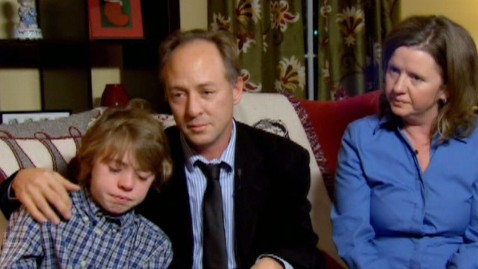TOKYO (Reuters) - Conservative ex-premier Shinzo Abe will get a second chance to lead Japan after his Liberal Democratic Party surged back to power in Sunday's election, but he must move swiftly to bolster a sagging economy and manage strained ties with China to avoid the fate of his short-lived predecessors.
Abe, whose party won by a landslide just three years after a crushing defeat, is due to meet the leader of its small ally on Monday to cement their alliance and confirm economic steps to boost an economy now in its fourth recession since 2000.
The victory by the LDP, which had ruled Japan for most of the past 50 years before it was ousted in 2009, will usher in a government pledged to a tough stance in a territorial row with China, a pro-nuclear energy policy despite the 2011 Fukushima disaster and a potentially risky recipe for hyper-easy monetary policy and big fiscal spending to boost growth.
Projections by TV broadcasters showed that the LDP had won at least 294 seats in the 480-member lower house, while its ally the New Komeito party took 31 seats.
That gives them a two-thirds majority needed to overrule parliament's upper house in most matters. Since 2007, successive governments have been hamstrung by a "twisted parliament" where ruling coalitions lacked control over the upper house, which could block most legislation.
While investors have already pushed the yen lower and share prices higher in anticipation of an LDP victory and Abe's economic stimulus, the "super majority" drove the yen to a 20-month low against the U.S. dollar as far as 84.48.
Japan's benchmark Nikkei opened up 1.6 pct on Monday, hitting a high of more than eight months.
Prime Minister Yoshihiko Noda's Democratic Party of Japan (DPJ) was crushed. It was forecast to win 57 seats -- less than a fifth of its showing in 2009, when it swept to power promising to pay more heed to consumers than companies and pry control of policies from bureaucrats.
But voters felt the DPJ failed to live up to those pledges and the party was hit by defections before the vote due to Noda's unpopular plan to raise the sales tax to curb public debt, which is already more than twice the size of the economy.
"This was an overwhelming rejection of the DPJ," said Gerry Curtis, a professor at New York's Columbia University. That sentiment was echoed in Japanese media.
"In a word, rather than a huge victory for the LDP, this election was a massive defeat for the Democrats," the Nikkei business daily said in an editorial.
Analyst Bruce Klingner of the Heritage Foundation think tank in Washington agreed, but said it "also reflects an embrace of conservative views" after strained relations with Japan's neighbors in recent years.
"Chinese assertiveness and North Korean provocations nudged the public from its usual post-war complacency toward a new desire to stand up for Japanese sovereignty," he said.
However, that did not mean the Japanese were embracing a return to militarism, added Klingner, a former CIA analyst.
LOW TURNOUT
Abe, expected to be voted in by parliament on December 26, will also have to prove he has learned from the mistakes of his first administration, plagued by scandals and charges of incompetence.
Voter distaste for both major parties has spawned a clutch of new parties, including the Japan Restoration Party founded by popular Osaka Mayor Toru Hashimoto, which took 54 seats according to media projections.
Media estimates also showed turnout at around 59 percent, which could match the previous post-war low.
LDP leader Abe, 58, who quit as premier in 2007 citing ill health, has been talking tough in a row with China over uninhabited isles in the East China Sea, although some experts say he may temper his hard line with pragmatism once in office.
The soft-spoken grandson of a prime minister, who will become Japan's seventh premier in six years, Abe also wants to loosen the limits of a 1947 pacifist constitution on the military so Japan can play a bigger global security role.
President Barack Obama congratulated Abe and underlined U.S. interest in working with the longstanding American ally.
"The U.S-Japan Alliance serves as the cornerstone of peace and prosperity in the Asia-Pacific and I look forward to working closely with the next government and the people of Japan," he said in a statement.
Abe, who visited China first during his first term, said he would start off this time by going to Washington.
The LDP, which promoted nuclear energy during its decades-long reign, is expected to be friendly to power utilities, although deep public concerns remain over safety.
Abe has called for "unlimited" monetary easing and big spending on public works to rescue the economy. Such policies, a centerpiece of the LDP's platform for decades, have been criticized by many as wasteful pork-barrel politics.
Jiji news agency said previous LDP Prime Minister Taro Aso, 72, could be tapped as finance minister and deputy premier. He launched massive economic stimulus packages to fight the impact of the 2008-2009 global financial crisis but was dogged by policy flipflops and gaffes.
Many economists say that prescription for "Abenomics" could create temporary growth that would allow the government to proceed with a planned initial sales tax rise in 2014 to help curb public debt.
But it looks unlikely to cure deeper ills or bring sustainable growth to Japan's ageing society, and risks triggering a market backlash if investors decide Japan has lost control of its finances.
(Editing by Tomasz Janowski and Paul Tait)










